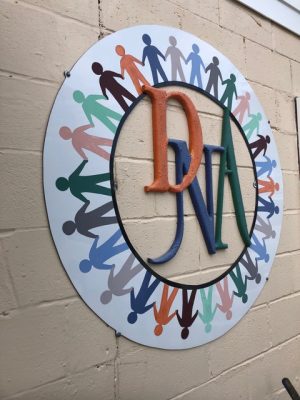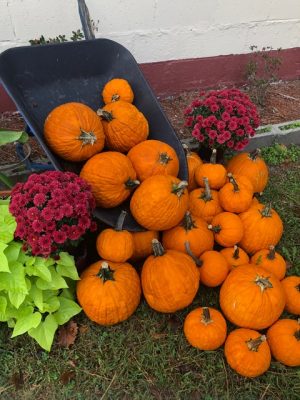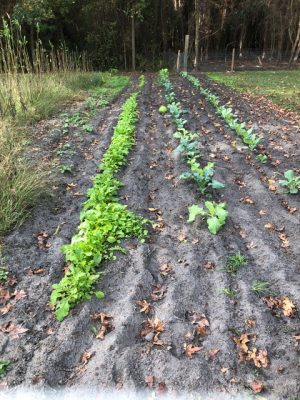Public health in practice: A community partnership for youth nutrition
Written by Tatum Shamiso Kodzai
July 12, 2022

The Diversity Nurtures Achievements Community Youth Center serves the youth community in Duplin County with nutrition programs.
Warsaw is a small, tight-knit community in eastern North Carolina that has faced decades of environmental and economic racism but continues to find ways to grow, develop and rebuild.
One Warsaw resident who exemplifies this effort to invest in the region’s wellness is Earlean Rivers, the founder and program director for Diversity Nurtures Achievements Community Youth Center (DNA). DNA has served as a center for education, community building and sustainable agriculture for almost a decade through learning programs, an expansive community garden and a Community Circles Program for adults in the community to discuss structural issues that impact Warsaw residents.
DNA has been a community partner of the UNC Gillings School of Global Public Health’s Food Fitness and Opportunity Research Collaborative (FFORC) team for several years, where they have worked together to accomplish Rivers’ vision for expanding DNA’s outreach. FFORC is a public health research group led by Assistant Professor of Nutrition Molly De Marco, PhD, at UNC’s Center for Health Promotion and Disease Prevention.
According to Rivers, this FFORC partnership has allowed her to connect and collaborate with similar-minded community leaders and FFORC partners. More specifically, it gives her a sense that she’s “not alone and that other communities are in her situation.” She also sees the partnership as a potential opportunity to “join forces with other FFORC community partners in order to apply for larger grants and make their voices heard.”

Pumpkins in a wheelbarrow outside the DNA Community Youth Center.
The community center offers programs throughout the day, beginning with DNA’s Structured Learning Program for students who have been expelled, expunged or suspended from school in Duplin County. Later in the day, 35-50 kids attend the after-school program. According to Rivers, “the main focus is academics and to provide nutritious, well-balanced meals since, for some kids, this may be the only meal that they’re getting during the day.”
After eating their meals and completing their homework, the children participate in a variety of extracurricular activities offered at the center, including time in DNA’s expansive outdoor community vegetable garden and livestock enclosure. The community garden initiative started when Rivers noticed the rampant food insecurity in the Warsaw area. The garden grows fruits and vegetables, ranging from collard greens to grapes. They also house chickens, goats and a koi pond on the facility. Rivers believes teaching children about gardening will help combat food insecurity in the region and will show kids that they can “still survive during tough times.”

The DNA Youth Center community garden grows fruits and vegetables, ranging from collard greens to grapes.
In addition to the community garden, DNA partnered with the UNC FFORC team to host a program called Community Circles to discuss how racism has shaped the lives of the Warsaw Community members. This discussion started with a racial wealth gap exercise developed by the organization Bread for the World and led by FFORC team member Tiki Windley.
“The plight of African Americans is not a coincidence,” Windley says. “Systemic racism embedded in policies created decades ago still impacts the economic, educational and social lives of many African Americans.”
The racial wealth gap simulation has sparked conversations outside of Community Circles, showing the appetite for knowledge this community has. Rivers recognizes the impact of systemic racism on community members and wants to spread awareness of this in her community.
Rivers is always looking for potential partnerships and support opportunities to be able to continue her powerful work. Her message to the public is simple: “DNA has a village mentality, and therefore one person can’t just do it alone.”
Her goal is for DNA is to become integrated into Warsaw, “not just for the youth, but for the whole community.”
Contact the UNC Gillings School of Global Public Health communications team at sphcomm@unc.edu.
